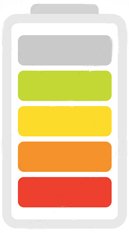21st Century Preparedness –
Preparing these students for the 21st century requires a balance between digital learning screen time and student centered lessons with ample opportunity to apply knowledge. Practical experiences are proven to assist students with learning a concept rather than memorizing information. Teachers should serve as facilitators of learning in place of the traditional model of teacher led bell-to-bell instruction. In the 21st century it will be more important for students to apply critical knowledge when given new concepts, situations, or experiences while rote memorization will place them at a huge disadvantage.
Dr. Donald Deshler says that many years of research have lead us to a method that supports an individual students learning in various areas called, Acquisition to Generalization. This method is the mode to which students are able to acquire new skills. It incorporates instructional procedures that are proven to support student growth. This includes learning strategies that span across curriculum and support higher learning goals in an effort to bridge the gap that exist between special education and their general education peers. According to Pressley (1990), “Once a student can carry out a strategy independently with instructional tasks, the challenge is to teach them to use the technique consistently for other tasks”.


